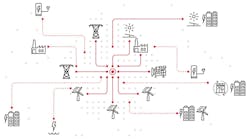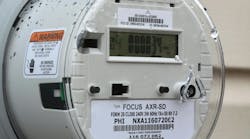The Bluetooth Special Interest Group has announced the formation of the Smart Energy Study Group. The team, made up of three sponsoring member companies including CSR, Broadcom and Emerson, will work together to address smart energy initiatives sponsored by governmental entities and other organizations interested in energy management throughout the world.
“With the formation of the Smart Energy Study Group, the Bluetooth SIG and its member companies will work together to tackle Smart Grid technology and increase the presence of Bluetooth technology in this fast growing industry,” said Michael Foley, Ph.D., executive director of the Bluetooth SIG. “Wireless technology is a key component of the battle to improve the smart grid. With proper short-distance wireless connectivity technology, the meter-to-device relationship will be one that allows users to remotely track, monitor, and adjust their energy use based on utility scales.”
The Smart Energy Study Group will begin immediately studying all aspects of the smart energy market and possible implications of Bluetooth technology in this arena. To do this, the group will review current available information on smart grid wireless technology, formulate a strategy for Bluetooth Smart Energy and make recommendations based on its findings.
Why Bluetooth Technology for the Smart Grid
Bluetooth wireless technology maintains a significant lead in wireless technology penetration in mobile phones – the chosen device for remote monitoring and control of smart grid meters. With the recent adoption of Bluetooth low energy wireless technology, manufacturers of in-home meters and monitors will be able to build wireless devices that run on button-cell batteries and still use all of the benefits Bluetooth technology has to offer.
“The formation of the Smart Energy Study Group will bring to light and expand the impact that Bluetooth technology will have on the clean energy industry,” said Foley. “We have the opportunity to make a difference in the way our country and the world controls energy use and it’s imperative that we do all we can to integrate wireless technology into the mix – it will not only benefit the wireless market, but it has the potential to revolutionize the clean energy market as well.”
About Bluetooth low energy Wireless Technology
Bluetooth low energy is a new low energy enhancement to the Bluetooth wireless technology Core Specification that paves the way to a vast new market for watches, remote controls, and healthcare and sports sensors. It has the potential to communicate with the hundreds of millions of Bluetooth enabled mobile phones, PCs and PDAs that are shipped each year. Consuming minimal power, it offers long-lasting connectivity, dramatically extending the range of potential applications and opening the door to brand new web services. Bluetooth low energy features ultra-low peak, average and idle mode power consumption; ultra-low cost plus small size for accessories and human interface devices (HIDs); minimal cost and size addition to handsets and PCs; global, intuitive and secure multi-vendor interoperability.

